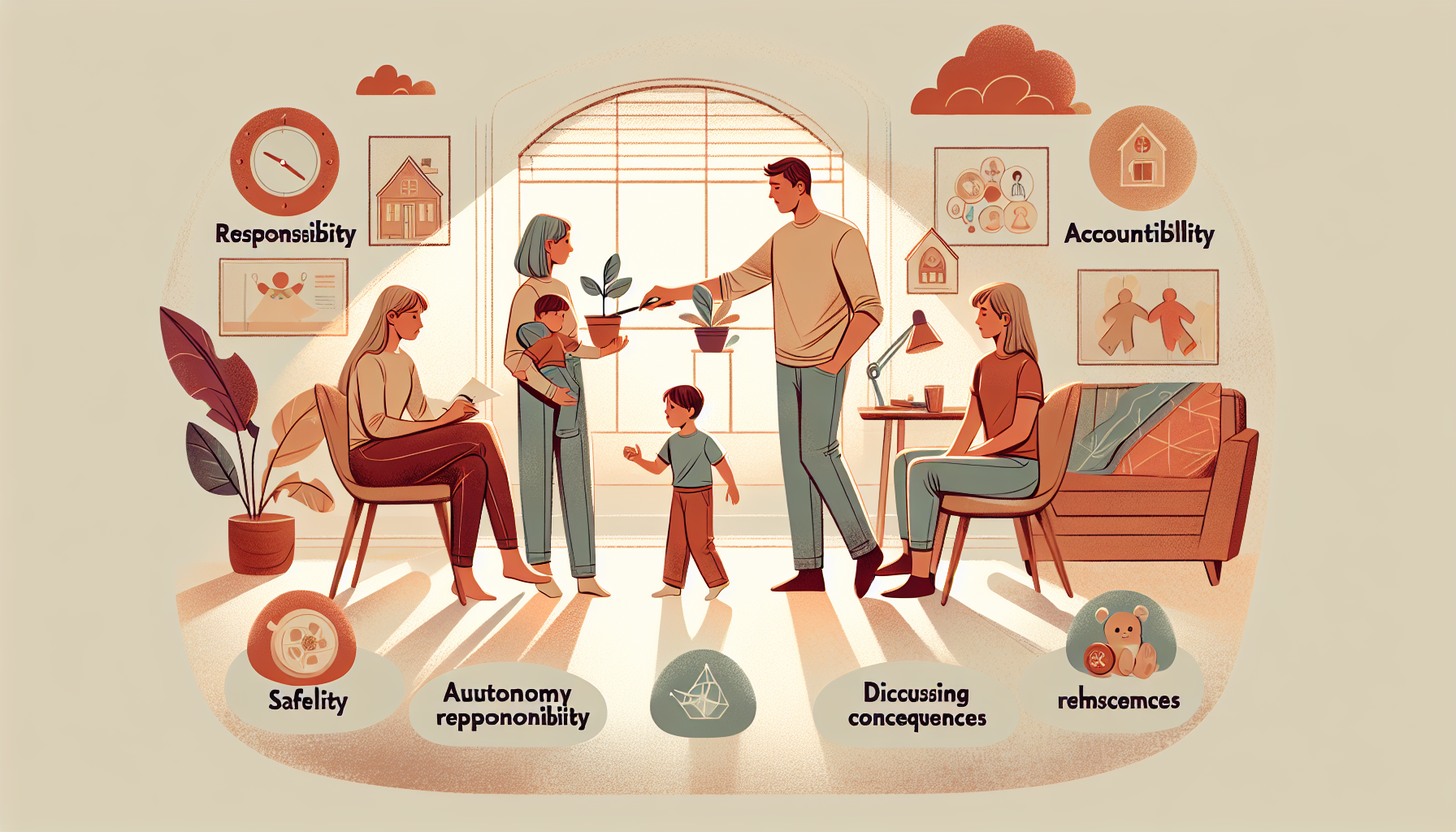Encouraging Children to Take Responsibility for Their Actions
As parents, one of our most important roles is to guide our children towards becoming responsible and accountable individuals. Encouraging children to take responsibility for their actions is crucial not only for their personal development but also for their success in social interactions and future endeavors. Fostering a sense of accountability in children can help them develop resilience, problem-solving skills, and self-confidence. In this article, we’ll explore effective parenting strategies to nurture responsibility in children, supported by scientific insights and practical advice.
Main Points
Understanding the psychology behind children’s behavior is vital for parents aiming to instill a sense of responsibility. According to cognitive-behavioral therapy (CBT), which emphasizes the connection between thoughts, feelings, and behaviors, children need a supportive environment that satisfies their psychological needs. These needs include safety, autonomy, and self-expression.
- Safety: Children thrive in environments where they feel secure. Establishing clear and consistent rules helps them understand boundaries and expectations, promoting a sense of safety. This foundation is key for them to take risks in admitting mistakes and learning from them.
- Autonomy: Providing children with choices empowers them and encourages independence. When children make decisions and face the consequences, they learn accountability firsthand.
- Self-expression: Encouraging open communication allows children to express their thoughts and feelings freely. When parents listen actively and validate their children’s experiences, it fosters an environment where children feel comfortable owning up to their actions.
Research shows that when children are held accountable, they are more likely to develop a growth mindset, understanding that mistakes are opportunities for learning rather than failures. This mindset is crucial for lifelong learning and resilience.
Practical Recommendations
Here are some simple yet effective tips for parents to encourage responsibility in their children:
- Model Responsible Behavior: Children learn by observing. Demonstrate accountability in your actions and decisions to set a positive example.
- Set Age-Appropriate Tasks: Assign chores or responsibilities suitable for your child’s age and skill level. Gradually increase the complexity as they grow, fostering a sense of accomplishment.
- Encourage Problem-Solving: When your child encounters a problem, guide them through the process of finding a solution rather than solving it for them. This builds critical thinking and decision-making skills.
- Praise Effort, Not Just Results: Recognize and commend your child’s effort in taking responsibility, even if the outcome isn’t perfect. This reinforces their motivation to keep trying.
- Discuss Consequences: Talk openly about the natural consequences of actions, both positive and negative, to help your child understand the impact of their choices.
Conclusion
Encouraging children to take responsibility for their actions is a vital aspect of parenting that contributes to their growth and success. By creating a supportive environment that meets their psychological needs and employing effective parenting strategies, parents can help children develop accountability and resilience. Implementing the practical tips discussed in this article can enhance communication and strengthen the parent-child relationship, ultimately preparing children to navigate life’s challenges with confidence and integrity.
For more insights on parenting, visit the Child Mind website.

